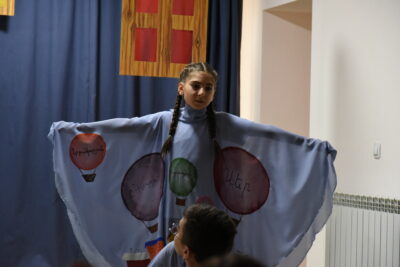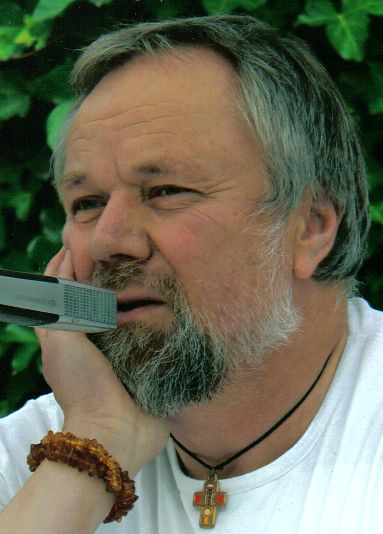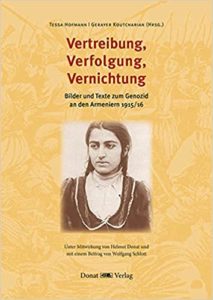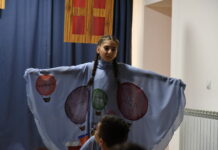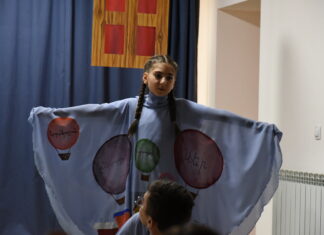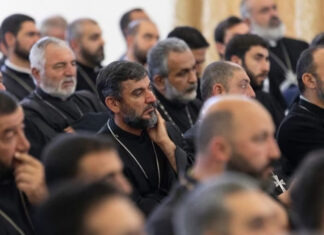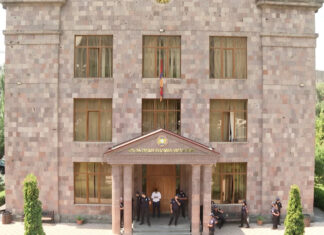BREMEN, Germany — It is not only his family and friends who have reason to congratulate Helmut Donat on his 75th birthday; members of the Armenian community everywhere should join in as well. As a publisher, he has done more to educate the reading public on Armenia, its people and history, its tragedies and achievements, than any other German publisher. In her birthday greetings (printed below) his long-standing friend and colleague, the well-known genocide scholar and human rights advocate Tessa Hofmann references a few of the many books he has produced, which cover a wide range of topics and genres, reaching back in time to before the first World War.
The list of valuable resources he has made available includes works examining the role of Imperial Germany: In 2004 his publishing house Donat-Verlag presented the account of the genocide written by Heinrich Vierbücher, Armenia 1915: What the German Imperial Government Concealed from Its Subjects. Then came Armenia, Turkey and the Duties of Europe by Eduard Bernstein and Otto Umfrid (2005). The Slaughter of a Civilized People at the Hands of the Turks, Two War Years in Constantinople 1915-1916 by German newspaper correspondent Harry Stürmer appeared in 2015. In the year of the centenary of the genocide, Donat-Verlag also released the definitive biography of Walter Rößler (1871-1929) by Kai Seyffarth. Rößler was a German consul in Aleppo, who displayed extraordinary courage in exposing the genocide as it unfolded, in hopes of influencing German policy to end the atrocities. And Yetvart Ficiciyan revealed what the public could read, in The Armenian Genocide as Reflected in the German Language Daily Press 1912-1922. Among works documenting its horrors is Expulsion, Persecution, Extermination, an album of photographs and texts associated with a permanent exhibition by Tessa Hofmann, in collaboration with Gerayer Koutcharian and Wolfgang Schlott.
In making such books available to the German public, Donat has performed the role of educator. And, most important, he has joined other scholars and human rights advocates like Hofmann, as an indefatigable campaigner for the recognition of the genocide by the German political establishment. Publishing, for Helmut Donat, is not a commercial enterprise but a vocation; he produces books and wields them like weapons in a campaign for historical justice.
Discovering the Armenians
Who is Helmut Donat? And how did he come to devote his energies to Armenian issues? He was born in Lower Saxony in the immediate post-war period, in a family of refugees. He trained for a career in the banking sector before returning to complete his secondary education, then pursued university studies in Braunschweig to become a teacher. From 1975 to 1981 he worked as an academic tutor and lecturer at the Bremen university, where he had settled. In 1981, Donat published his first work, a book on a naval officer named Hans Paasche. Born in 1881, Paasche had opposed the cult of violence developed in Germany and was killed in 1920 by radical rightwing soldiers. Not having found any publisher, Donat decided to put out the book on his own. In 1984, he set up a publishing house together with Horst Temmen, the Donat & Temmen Verlag. Four years later, the two parted ways, and continued independently. Donat-Verlag in Bremen has since come to occupy a special place in German publishing.
His first contact with Armenia goes back to his early years. He told the fascinating story in a speech delivered on April 9, 2010:
